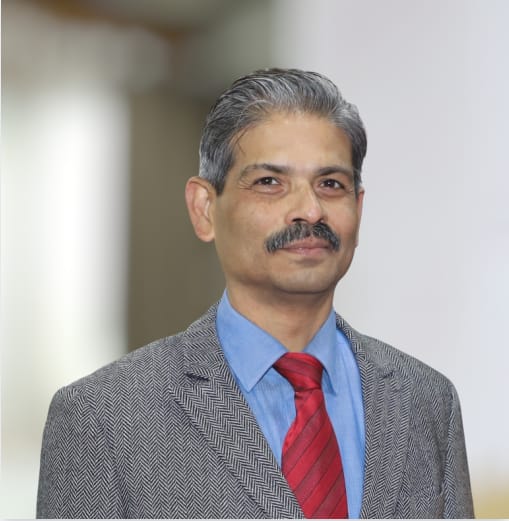SRINAGAR, June 2: People who kept ‘hisab-kitab’ (accounts) and acted as eyes and ears of the ‘enemy’ in the past took part in the electoral process this time as the Jammu and Kashmir administration and the police ensured a safe space free from external threats, DGP Rashmi Ranjan Swain said.
This year’s Lok Sabha election saw a remarkable voter turnout in Jammu and Kashmir which signalled towards a shift in the region’s political landscape, Swain told PTI, highlighting a newfound sense of freedom from fear among the people.
In the first major electoral battle in Jammu and Kashmir since the abrogation of Article 370 and the bifurcation of the erstwhile state into Union territories in August 2019, the three Lok Sabha seats in the Valley— Srinagar, Baramulla and Anantnag-Rajouri, recorded their highest-ever voter turnouts in the last three decades.
Director General of Police (DGP) Swain commended the security forces for their efforts in monitoring potential threats from external elements particularly ‘proxies of Pakistan’ who intended to disrupt the democratic process.
Speaking to PTI after the completion of the poll process, Swain stressed the positive impact of the high voter turnout and said “I, my colleagues in J&K Police and the wider administration of J&K’s UT government, see it as an enabling environment where you have freed the people from fear.”
He also drew attention to the campaigning activities that were held in the middle of night, besides roadshows and door-to-door campaigns conducted ‘without the lurking threat of the Pakistani gun’.
“Security forces kept tabs on their (Pakistan) proxies and agents who once had this huge nuisance value of keeping a tab on all those who would think about bringing back democracy and electoral politics in its original form, the way it happens in the rest of the country,” the DGP said.
Swain also acknowledged the past role of the banned Jamaat-e-Islami in monitoring and targeting individuals involved in electoral politics. He, however, noted a potential shift within the outfit, saying some of its members publicly participated in the recent elections which indicated a possible change in their approach.
“The regime of intimidation works in two ways. It is not only the threat of the gun but as I said the lurking threat that somebody is watching, somebody is keeping ‘hisab kitab’ (accounts), somebody is trying to note who all are actually showing the tendency of participating in anything even remotely connected with electoral politics.”
“It was Jamaat-e-Islami essentially in the villages, small towns and cities who had kind of worked as eyes and ears of the enemy to quietly note down who these persons were and then profile them and then have them harmed,” the police chief said.
He added, “So when this very organisation, which scrumptiously was pulling the strings, had a change of mind by way of making certain public statements and then coming out themselves and voting, I am sure the common man must have taken notice of it.”
The participation of previously wary individuals and organisations like the Jamaat-e-Islami in the electoral process reflects a changing dynamic in the region, offering a hope for a more open and democratic future, Swain said.
He also suggested a growing confidence among the populace as it embraces political participation without fear of reprisal from external forces.
The J&K police chief discussed efforts to counter attempts aimed at disrupting the polls, emphasising the importance of deterring intimidation tactics used by adversaries. He also highlighted the use of legal measures rather than kinetic actions to address the challenges, noting the significant success achieved in maintaining law and order.
“It was also to counter and tell them that the tactics and the strategies which they (Pakistan) have traditionally employed to browbeat would be paid back in the same coin,” asserted Swain.
The DGP said he would not like to accuse any particular societal institution, but added that Pakistan and its proxies had succeeded “in hijacking and taking over many of our institutions which existed for the good of the society”.
In the last three-and-a-half years, “we did not use kinetic actions to control and handle these bullies. We used law, the force of law and the rule of law, and I think we succeeded to a substantive extent,” Swain said.
On the progress made so far in achieving peace, the police chief said while the situation was a work in progress and substantial achievements have been made, there was a need for continued efforts.
“I think this is best described as a work in progress. If the question is what percentage of road has been covered, it would slightly be difficult to quantify it but I must say that to a sizable extent,” he said.
Swain emphasised the government’s responsibility to maintain security and provide a sense of peace for its citizens, indicating a collective endorsement of these efforts by the public through their actions such as rejecting calls for strikes.
Overall, the police chief expressed a cautious optimism about the current state of affairs and acknowledged the need to further strengthen governance and security in the region.
“When calls for bandhs used to come from across, the way people refused to respond to it… if anyone says they were doing it under compulsion, I think it would be a lie. So to that extent, I think we have travelled a distance and we need to travel the whole hog, the full length of it,” Swain added.


